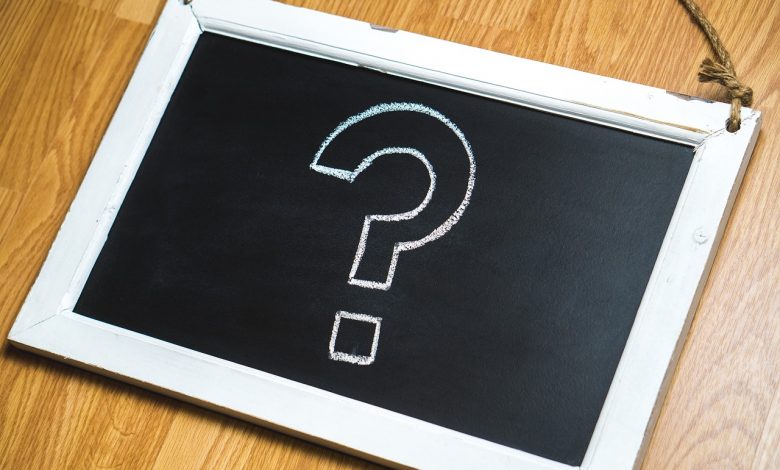
Common Weight Loss Questions You Should Never Be Afraid To Ask
There are lots of ways to lose weight (some healthier than others) and many popular diet options out there, from giving up carbs to fasting. Some favor calorie counting and exercise, and we all know crash diets and restrictions aren’t healthy – so how can you lose weight in a healthy way? To begin with, any good habit begins with knowledge. A foundation of learning about nutrition, calories, and your specific requirements is the best way to make the right decisions for you and your weight, and understanding some of the most common conundrums may help to guide your way.
Do my genetics have an impact on my weight?
According to the Centers for Disease Control and Prevention, genetics do play a role in regards to weight. Harvard Health studies, meanwhile, show that the amount of influence genes can have on one’s weight vary from anywhere between 25 percent for some to as high as 70 percent influence on weight for others. This doesn’t mean, however, that you can’t lose weight though or maintain a healthy weight. Even the CDC simultaneously emphasizes that not only do genes not have to necessarily dictate future health, but that behavior also plays a large role. Your decisions, rather than your genes, still impact your health significantly. While genes play a part, conscious choices can influence your weight perhaps even much more than your DNA.
Does extra walking help with weight control?
Taking more steps every day can have a calorie burning effect. It’s more exercise – which burns more calories – and those who rely on their cars to get around tend to find more difficulty in general with their weight than those who walk more often. You can add more steps to your day in a few easy ways. You can park your car a little further away, take the stairs at work instead of the elevator, or even get off the bus a stop early. Meanwhile, many phones now have built-in step counters – or you could treat yourself to a pedometer to help you keep count and set step goals. Any way that you can find to get moving more will definitely be a win for weight management and help create a mindset of choosing healthier choices.
How many calories should I eat in each meal?
The number of calories you eat in each meal is a similar question to how many you should eat in a day – it will vary for everyone. Depending on your daily total, you’ll want to spread your calories out throughout the day. If your aim is to get around 2000 per day, you could break it down into roughly 500 per meal for a standard three meal-day, with a couple snacks thrown in around 250 each. If you’re someone who likes eating smaller, more frequent meals, your breakdown would look a little different, and likewise someone who does better with a bigger breakfast and lighter dinner will want to change it up to suit their preference. The key across the board, no matter how many calories you need each meal, is to focus on getting those calories in the healthiest way possible – with lots of whole foods and balanced plates.
Is the bathroom scale the best way to measure the weight that I’m losing?
The scale can help you gauge your progress, but it’s also easy to get frustrated if the scale isn’t moving as much as you’d like when you know you’re working hard. If you’re exercising, your weight might not change much because your body will be losing fat and gaining muscle. Muscle weighs more than fat, and while the scale may not move much because of the offset, it’s much healthier than even simply shedding pounds. If you need a number to follow, you can do measurements – in areas like thighs, waist, or hips on a regular basis to see if you’re shedding inches – but you can also take note of how your clothes fit and feel. Weight loss is about happiness as much as health, and feeling good in your clothes (or finding out you need to shop because your old ones are now too big!) can be a great, basic barometer for gauging if you’re accomplishing your goals. Are your favourite pair of jeans too tight? Can you still fit in your favourite dress? Are you using a different hole in your belt than you used to? The scale and the tape measure will give you feedback, but they’re not the only options.
If I eat healthily during the week, can I cheat on weekends?
Weekends make up 30 percent of your week. While many diets purport the use of a “cheat day,” too many days of cheating on your healthy diet will soon start to undo your hard work. It’s all too easy to cancel out five days of healthy eating with a whole blowout weekend. Being consistent with your diet is great, and if you find you need a cheat day, they’re designed for exactly that – allowing you to maintain healthy habits the majority of the time without going crazy. The idea, however, is ultimately one of balance. So instead of packing all your treats into the weekend, either try one day, half a day, or spread them out if that’s an option that won’t tempt you to backslide into bad habits. Rather than a cheat day, you could still enjoy the occasional slice of cake or a glass of wine, just interspersed lightly among your healthy food instead of going full snack mode over the course of an entire weekend.
What’s the best way to keep off the weight after I’ve lost it?
If what you’ve done to reach your goals has worked, maintain it! You don’t want to reach the summit just to slide back down. The same habits that got you to your goal will also keep you there, and creating a healthier lifestyle (rather than just following a fad diet for a few weeks) will help keep you from moving backwards once you’ve gotten where you want to go. Many dieters reach their goal weight and go right back to their old habits, but regular exercise is essential to keep you at a healthy weight once you’ve reached one. Activity levels will vary for everyone, but any change you make will send you either backward or forward – so moving less is generally not going to put you in the direction you want to go. Likewise, you’ll want to maintain your healthy eating habits. Keeping within your calorie goals for the day and getting a mix of healthy fats, protein, and carbohydrates will help you to keep your weight down. If you find your motivation takes a dip while you’re working to maintain your new weight loss, look for a way to keep on track like trying out new exercise classes or join a running (or dancing, or boxing) club. Take classes in healthy cooking or book a personal trainer to help you stay focused.
Learning about how best to fuel your body is the best way to lose weight and maintain the loss. A healthy diet and regular exercise will help you to keep fit and healthy, while remembering that each person’s weight loss journey is unique and that creating maintainable habits over time is key. Above all, arming yourself with knowledge will help provide the answers you need to reach your specific goals.



